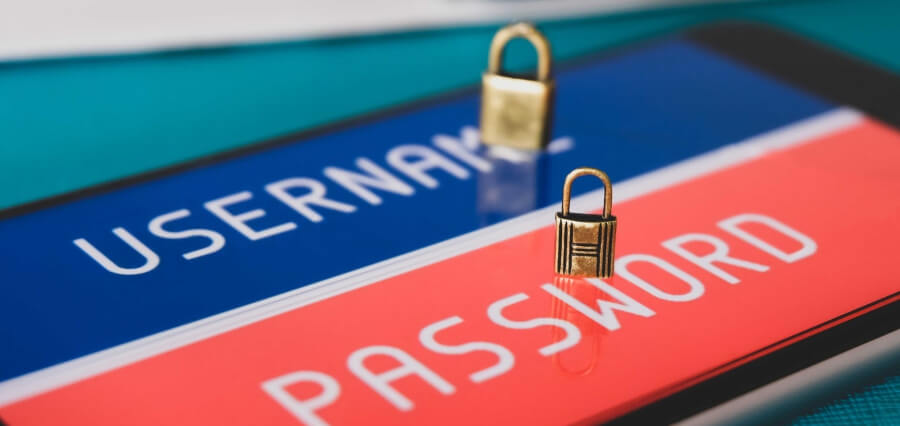The first things that comes to mind when people hear about data security breaches are banks or major financial institutions. In reality, the healthcare industry suffered as much or perhaps more when it comes to cybersecurity breaches.
In fact, cybersecurity is becoming the top priority for healthcare organizations. It is becoming more evident that cybersecurity is a risk factor in healthcare data. According to a report, healthcare continues to be the most impacted sector, accounting for 79% of all reported data breaches during the first ten months of 2020. What is more, healthcare organizations have experienced increased cyber-attacks by 45% since November 2020.
Additionally, many healthcare providers have had to pay HIPAA fines for experiencing security breaches that they could do very little to avoid. Should cybersecurity still be neglected?
Why is healthcare one of the biggest targets?
Covered entities like hospitals as well as business associates store an incredible amount of patient data. Patients’ data possesses such significant monetary and intelligence value that it naturally attracts cybercriminals and nation-state actors. If successfully breached, hackers can get their hands on patients’ protected health information (PHI), personally identifiable information (PII) like Social Security numbers, financial information such as credit card and bank account numbers, etc.
These stolen health records can sell ten times or more than stolen credit card numbers on the black market. Moreover, the bad news does not stop there. The cost to remediate a security breach for healthcare organizations is three times more than that of other industries.
How is cybersecurity related to HIPAA compliance?
Compliance with the Health Insurance Portability and Accountability Act (HIPAA) entails two primary things. Portability, which is related to being able to transfer healthcare coverage, and accountability, which pertains to protecting healthcare records.
In the broader sense, accountability is crucial to compliance efforts since it requires protecting all healthcare data. The accountability aspect is closely associated with cybersecurity since sensitive data is most vulnerable when stored or moving in electronic form.
According to the HIPAA Security Rule, covered entities are required to implement and maintain protections for electronic protected health information (ePHI) to defend against a breach. The protection mechanisms must be implemented through appropriate physical, technical, and administrative safeguards under the security rule.
Encryption, authentication, password complexity, access auditing, and segmentation are all included within technical controls. Administrative controls include policies for passwords, incident response plans, audit procedures, and contingency plans.
Today, healthcare data exists in a range of various digital ecosystems and is a part of the Big Data revolution. Numerous patients use wearables and implantable IoT medical devices like pacemakers and heart monitors. When all these items are connected to the internet, it makes it susceptible to cyber-attacks.
Most of these IoT devices do not have endpoint security. One of the most pressing security concerns is how the device collects information and transmits it to the healthcare provider. From a HIPAA compliance standpoint, and with many other ways that information can be breached, a healthcare provider needs to understand and develop an appropriate protection strategy.
As we can see, cybersecurity is closely related to HIPAA compliance. Besides, being HIPAA compliant does not mean your organization won’t ever experience a security breach, nor does a robust cybersecurity program ensure HIPAA compliance. These two work hand in hand. Therefore, healthcare organizations must carefully assess their security and implement appropriate and reasonable safeguards that apply to their practice.
Simple Tips to Improve HIPAA Compliance and Cybersecurity
Here are a few practices that healthcare organizations can follow to prevent highly sophisticated cyber-attacks:
- Identify gaps and areas for improvement by reviewing the current security risk analyses. Risk assessments must also be documented to guarantee regulatory compliance.
- Review and adjust current risk management plans to ensure that the measures can mitigate the identified risks. Adopt industry-standard best practices like unique IDs, complex passwords, screen locks, auto time-out, and role-based permissions.
- Make sure to update HIPAA and cyber-related policies and procedures to account for changes made by legal and regulatory authorities. Also, ensure that employees are properly trained on current best practices, including cybersecurity. Including cybersecurity as part of the HIPAA training can be a good idea. Popularly, many progressive healthcare organizations utilize HIPAA compliance software for training, certification, and more.
- Prepare and implement a robust incident response plan in case an unexpected data breach occurs. It is also vital to make backups and develop a recovery plan. Many organizations forget about creating backups when it’s such a common thing to do. It is also essential to ensure that the medium used for backup is safe and protected from external attacks.
- You should not also forego investments in people, processes, technology, and management. Don’t let the IT staff take on the burden alone for defending digital assets.
Instead, do your research for the latest technology and best practices implemented by other organizations to blend security planning with new products and services.
As each day passes, cybersecurity is becoming a pressing concern and cannot be ignored in any way. Stronger cybersecurity measures will support compliance. That is why it is critical to consider cybersecurity when developing HIPAA compliance plans to protect your patients and your reputation.















